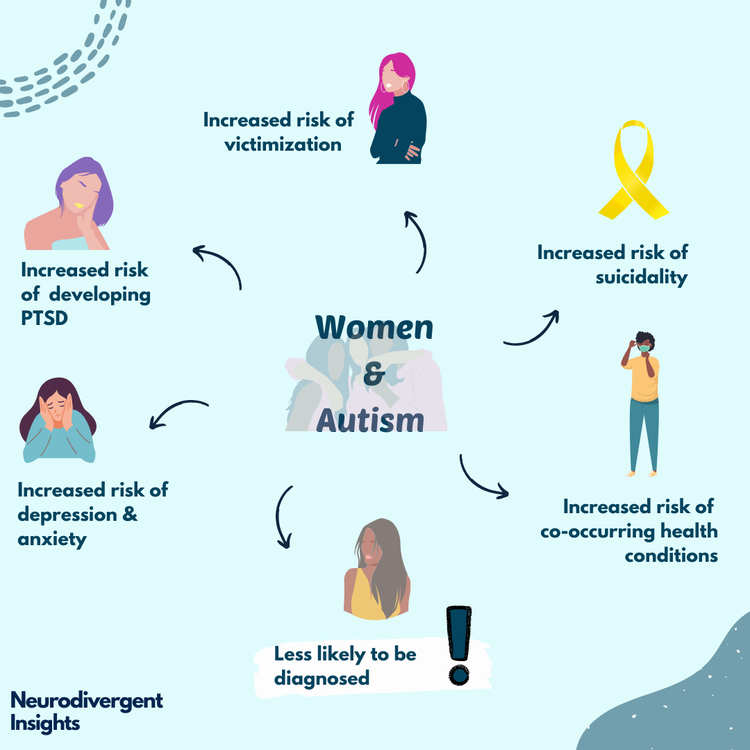Comprehending the Spectrum: A Comprehensive Guide to Autism Recognition
Comprehending the Spectrum: A Comprehensive Guide to Autism Recognition
Blog Article
Comprehending Autism: A Comprehensive Overview to Symptoms And Signs
Autism Spectrum Condition (ASD) includes a variety of qualities that can considerably influence an individual's social interactions and everyday functioning. Identifying the symptoms and signs, such as challenges with eye contact, social communication problems, and sensory sensitivities, is critical for early intervention. Comprehending these subtleties not just help caregivers and instructors in offering appropriate assistance yet also promotes a more inclusive environment for people with ASD. As we discover the intricacies of autism, it comes to be vital to think about just how these indications materialize differently across the spectrum and what implications they hold for effective treatment techniques.
Review of Autism Range Disorder
Specifying Autism Range Problem (ASD) involves recognizing it as a complex neurodevelopmental condition characterized by an array of difficulties in social communication, interaction, and behavioral patterns. The term "spectrum" reflects the wide irregularity in signs and symptoms and their severity, which can vary considerably from one person to an additional. ASD generally manifests in early childhood, although some people may not get a medical diagnosis till later on in life.
Aspects affecting the development of ASD consist of genetic predispositions and ecological variables, although the precise reasons continue to be under examination. Diagnosis commonly depends on behavioral assessments, as there are no conclusive medical tests for ASD. Early treatment is important and can significantly improve outcomes, concentrating on improving communication skills, social communications, and flexible habits.
Individuals with ASD may additionally display distinct staminas, such as outstanding interest to information or certain areas of competence. Comprehending the complex nature of ASD is important for promoting a comprehensive setting that suits neurodiversity. Proceeded study is important for developing reliable interventions and assistance systems, enabling people with ASD to grow and satisfy their possible within society.
Usual Indications of Autism
Identifying the typical signs of Autism Spectrum Problem (ASD) is vital for early recognition and intervention. These signs can vary extensively in severity and discussion, yet particular qualities are regularly observed in individuals with ASD.
One of the most widespread signs is a marked difficulty in establishing and keeping eye contact. Individuals may likewise exhibit limited interest in social interactions and reveal a choice for solitary play.
Sensory sensitivities are likewise usual; people might underreact or overreact to sensory stimuli, such as textures, lights, or sounds. autism. Language development can be irregular, with some youngsters showing postponed speech or utilizing language in unusual ways, including echolalia-- repeating expressions or sentences heard somewhere else
It is necessary to keep in mind that not every person with ASD will certainly show all these signs, and the degree of these actions can vary substantially. Early recognition enables for timely assistance and sources, boosting the lifestyle for those on the spectrum.
Social Communication Challenges
Social interaction difficulties are a trademark of Autism Spectrum Problem (ASD), influencing an individual's ability to involve properly with others. These difficulties can show up in different ways, consisting of obstacles in starting and maintaining discussions, comprehending social hints, and reacting properly in social interactions.
People with ASD may battle with nonverbal interaction, such as eye contact, face expressions, and body language. This can result in misconceptions, as their communicative intent might not be correctly interpreted by others. In addition, they may locate it tough to grasp the subtleties of tone and context, which are important for efficient interaction.
In group settings, individuals with ASD might really feel overwhelmed and might not know exactly how to sign up with in discussions (autism). They may i was reading this likewise display atypical conversational patterns, such as monologuing regarding specific interests without acknowledging social reciprocity
In addition, these challenges can result in social isolation or difficulties in creating relationships, as peers might misinterpret their habits or interaction design. Recognizing these social communication obstacles is important for promoting supportive settings that promote social abilities advancement and boost the high quality of interactions for individuals on the autism range.
Sensory Level Of Sensitivities and Reactions
Many individuals with Autism Range Problem (ASD) experience heightened sensory sensitivities that can significantly influence their day-to-day lives. A person with ASD may locate everyday noises, such as a vacuum cleanser or crowded settings, overwhelmingly distressing, leading to anxiousness or disasters.
Sensory handling differences in individuals with ASD can additionally affect their ability to take part in social communications and regular tasks. For example, a youngster that is sensitive to touch may stand up to physical love or prevent certain apparel textiles. Additionally, a preference for specific textures or tastes can restrict dietary choices and create difficulties during nourishments.
Understanding these sensory sensitivities is essential for acknowledging the special experiences of people with ASD. Recognition of their sensory accounts can foster better interaction and support techniques, developing an atmosphere that accommodates their demands and improves their lifestyle. Ultimately, acknowledging sensory sensitivities is an important part of comprehending the more comprehensive range of autism.

Supporting Individuals With Autism
Efficient assistance for people with Autism Spectrum Disorder (ASD) is critical for improving their general health and promoting freedom. Assistance methods ought to be customized to satisfy the one-of-a-kind requirements of each person, considering their difficulties and staminas.

Social abilities training can likewise play a critical function. autism. Engaging people in group activities or role-playing circumstances can improve their capacity to browse social communications. Furthermore, it is vital to inform relative, caretakers, and peers regarding ASD to promote a helpful and inclusive neighborhood
Verdict
To conclude, a detailed understanding of Autism Spectrum Disorder is essential for recognizing its symptoms and signs. Early recognition of usual characteristics, such as social interaction challenges and sensory level of sensitivities, allows instructors and caregivers to implement effective treatments. By promoting enhanced interaction and social skills, people with autism can browse this site navigate their settings much more effectively. Ultimately, enhanced awareness and assistance can considerably enhance the quality of life for those impacted by ASD.
Autism Range Problem (ASD) incorporates a wide range of features that can dramatically influence an individual's This Site social interactions and everyday functioning.People with ASD might have a hard time with nonverbal interaction, such as eye call, face expressions, and body language.Numerous people with Autism Spectrum Problem (ASD) experience enhanced sensory sensitivities that can significantly impact their daily lives.Sensory processing differences in people with ASD can additionally impact their ability to involve in social interactions and routine activities.Understanding these sensory sensitivities is essential for recognizing the unique experiences of individuals with ASD.
Report this page